
U.S. Secretary of State Anthony Blinken will travel to the Middle East next week on his seventh diplomatic mission to the region since the war between Israel and Hamas in the Gaza Strip began more than six months ago, the Associated Press reported on Saturday, citing the State Department.
According to the AP, Blinken leaves for Saudi Arabia on Monday, just two days after returning to Washington after a trip to China. Blinken will attend a World Economic Forum conference and meet with Arab foreign ministers in Riyadh, the Saudi capital.
An Israeli foreign ministry spokesman said that Blinken will visit Israel on Tuesday, and this stop is not mentioned in the State Department’s announcement of Blinken’s itinerary.
Since mid-October, Blinken has been traveling between Israel and most of its Arab and Muslim neighbors in an effort to increase aid to civilians in Gaza, prevent the spread of conflict throughout the region, and build support for plans to rebuild and govern post-war Gaza. – while openly supporting Israel’s right to self-defense.
Israel’s offensive in Gaza has increased political pressure in the United States, with pro-Palestinian protests at universities sparking resistance from those who claim the demonstrations have turned into anti-Semitism.
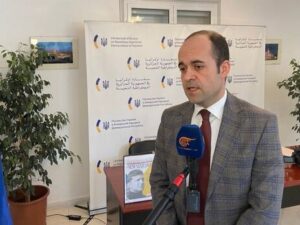
President of Ukraine Volodymyr Zelenskyy has appointed Maxim Subkh as Special Representative of Ukraine for the Middle East and Africa.
The corresponding decree is dated July 12 and published on the website of the head of state.
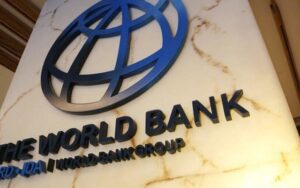
The Middle East and North Africa region (MENA) is in a “critical” position with food and fuel as the Russia-Ukraine war continues to unfold, World Bank Managing Director of Development Policy and Partnerships Mari Pangestu told Al Arabiya TV channel.
“Our forecast team has been estimating that if we see high food and fuel prices last for six months to a year,” she said, “it could negatively impact growth.”
In the global context, “availability and affordability” of food is the UN-backed organization’s concern, according to Pangestu. However, she said that unlike the global food crisis in 2008, the World Bank official clarified that “we actually don’t have a shortage of production.”
“There’s sufficient production of… wheat, rice or other grain products,” she said.
She also said that the food issue goes beyond the Ukraine war.
“Food security and price drops are something that’s not going to go away even after we have resolved the current situation,” Pangestu said.
Earlier this week, U.S. Secretary of State Antony Blinken told Medi 1 that Russia’s war in Ukraine is affecting food supplies and energy prices around the world.
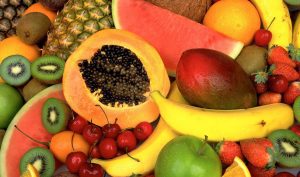
First Ukrainian Apples Producers aggregation platform (USPA FRUIT) jointly with USAID Competitive Economy Program in Ukraine start a joint initiative entitled “the Fruits Expansion to the Countries of the Middle East and Africa,” under which Ukrainian fresh fruit producers will receive help to enter new markets. According to a press release of the USPA FRUIT platform, under the initiative trade and economic missions for companies-members of the platform to the Middle East and Africa will be organized. Ukrainian producers will also have access to market analytics, which in the future will help them conclude deals for the supply of fresh fruits (apples, cherries, blueberries), increase export sales and create new jobs.
“Establishing stable supplies will be preceded by a detailed study of the Middle East and Africa markets, which will help USPA FRUIT identify priority exports, develop and implement pricing and marketing policies for each country in the region, which in turn will create competitive entry and consolidation in these markets. Within the project, USPA FRUIT aggregation platform organizes trade and economic missions to Egypt, Qatar and the Kingdom of Saudi Arabia, what will help to establish program supplies of fresh fruits from Ukraine,” USPA FRUIT said.
Fresh fruits from the USPA FRUIT aggregation platform have been presented in the UAE market for three years already, but there are still many opportunities for development within the markets of the Middle East and Africa.
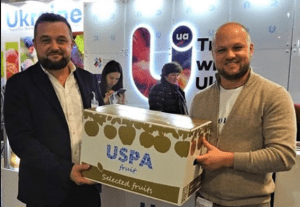
Fresh fruits from the USPA FRUIT aggregation platform have been presented in the UAE market for three years already, but there are still many opportunities for development within the markets of the Middle East and Africa, the use of which will further strengthen the position of Ukrainian suppliers in the regions, diversify sales, increase competitiveness and profitability of exports of the platform ‘s member companies.
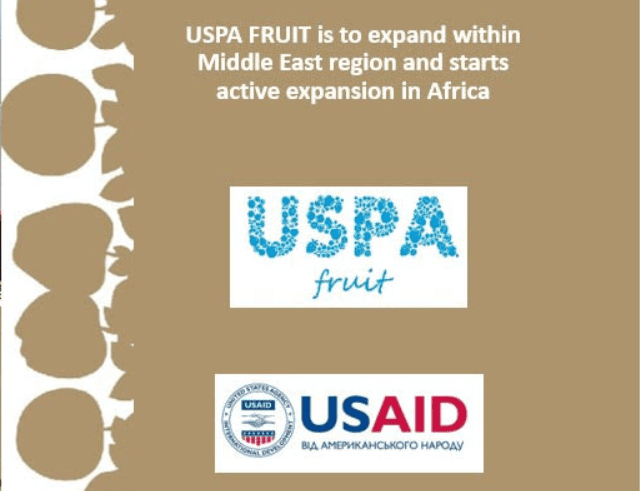
USPA FRUIT, together with the USAID Competitive Economy Program in Ukraine are launching a joint initiative «Fruits’ Expansion to the Countries of the Middle East and Africa,» within the framework of which to study markets perfectly, work to develop the export potential of platform’s members companies and organize trade missions. This will help to establish stable supplies of Ukrainian fruits to the markets of the Middle East and Africa, as well as to diversify supplies.
Establishing stable supplies will be preceded by a detailed study of the Middle East and Africa markets, which will help USPA FRUIT identify priority exports, develop and implement pricing and marketing policies for each country in the region, which in turn will create competitive entry and consolidation in these markets.
Within the project, USPA FRUIT aggregation platform organizes trade and economic missions to Egypt, Qatar and the Kingdom of Saudi Arabia, what will help to establish program supplies of fresh fruits from Ukraine.
For Ukrainian producers-members of the aggregation platform, it is an opportunity to enter new markets, increase export sales volumes and create new jobs.

KSG Agro next year plans to boost grain and wheat flour export to Oman, Qatar, Libya and Angola 2.8 times compared with 2019, to 50,000 tonnes.
The holding said in a press release that in 2019 KSG Agro plans to export up to 18,000 tonnes of grain and flour to these countries, and at present, 11,800 tonnes of goods have been delivered.
The company said that in 2019, the agricultural holding exported cereals and flour exclusively to Oman, Qatar, Libya and Angola.
“We are very interested in exporting to the markets of the Middle East and Africa, where there is a demand for our products. Expanding agricultural exports allows us to diversify sales channels and receive foreign exchange earnings, as well as increase margins,” KSG Agro Board Chairman Serhiy Kasianov said.
In 2018, KSG Agro delivered 5,000 tonnes of corn to Oman and Qatar, in 2019 the export of this crop to two countries amounted to 5,300 tonnes. In addition, this year, the agricultural holding exported feed barley to these two countries in the amount of 4,000 tonnes. Also in 2019, KSG Agro delivered 2,500 tonnes of wheat flour to Libya and Angola.
“Thus, the total export volume of agricultural products of the agricultural holding in 2019 increased 2.4 times compared to 2018,” KSG Agro said.
KSG Аgro is a vertically integrated agricultural group, working in almost all the segments of the agricultural market, including the production, storage, processing, and sale of agricultural products.